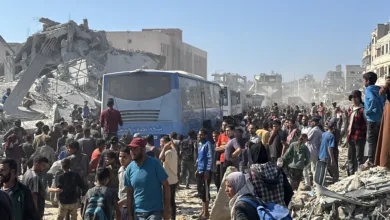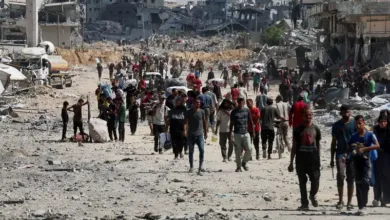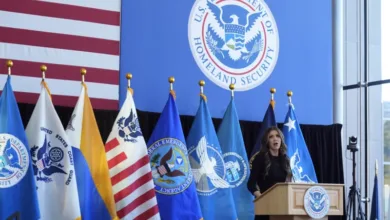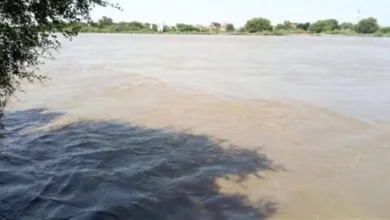Anticipated Meeting Between Trump and Qatar’s Prime Minister Signals Diplomatic Support
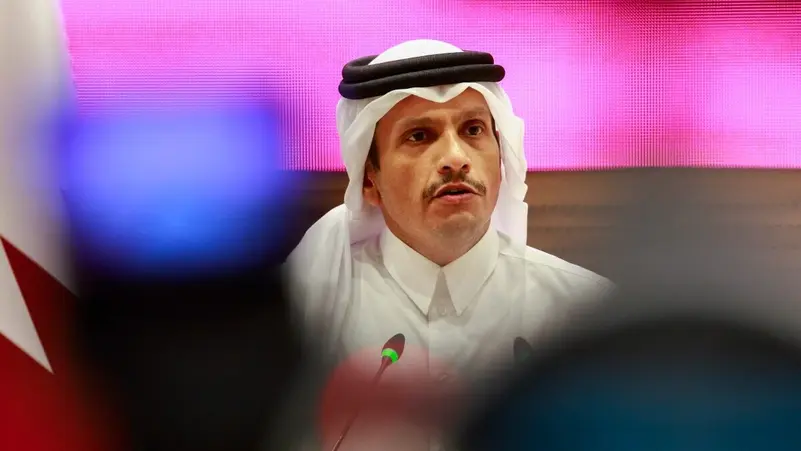
Former U.S. President Donald Trump is scheduled to meet Qatar’s Prime Minister Sheikh Mohammed bin Abdulrahman Al Thani in New York on Friday evening. This meeting is set to address the fallout from Israel’s recent airstrike on Hamas leaders in Doha, signaling both support for Qatar and a strong stance against unilateral military action. Analysts suggest that this high-profile encounter could influence diplomatic efforts in Gaza and shape U.S.-Middle East relations for months ahead Trump News.
The Purpose of the Meeting
The discussions between Trump and Sheikh Al Thani are expected to focus on multiple issues. A key topic is the U.S.-Qatar security agreement, which reinforces strategic cooperation and ensures that Qatar remains a critical logistical hub for U.S. operations in the Middle East. Qatar’s leadership is also expected to emphasize international pressure on Israel to end hostilities in Gaza, reflecting Doha’s growing role as a regional mediator Breaking News.
Sheikh Al Thani will first arrive in Washington, D.C., to meet with Secretary of State Rubio and U.S. Vice President J.D. Vance. Later, he will travel to New York for a face-to-face discussion with Trump and White House envoy Steve Whitkoff. Experts note that these meetings demonstrate Qatar’s diplomatic leverage and the strategic importance of direct engagement with U.S. leadership World.
The Context: Israeli Airstrike in Doha
The backdrop to this meeting is the sudden Israeli airstrike in Doha on Tuesday, which resulted in at least six casualties while Hamas leaders were reviewing a U.S. ceasefire proposal. The strike disrupted ongoing negotiations mediated by Qatar, Egypt, and the United States, drawing widespread condemnation from the United Nations Security Council this report.
Sheikh Al Thani criticized Israel for disregarding the safety of hostages in Gaza, stressing that Qatar remains committed to ending the nearly two-year conflict. In a UN Security Council emergency session, he stated that Israel had crossed “all boundaries and limits” and warned that the raid threatens regional peace another source.
U.S.-Qatar Security Relations
A central topic of discussion is the long-standing security relationship between the U.S. and Qatar. Officials from the Qatari International Media Office emphasized that reports suggesting a reassessment of this partnership were “completely false” and reaffirmed that defense ties with Washington are “stronger than ever” analysis.
The U.S.-Qatar security agreement underscores Qatar’s role as a host for military facilities, enabling rapid response and operational flexibility for U.S. forces in the region. Analysts highlight that reinforcing this alliance is not only crucial for immediate conflict mitigation but also for long-term stability detailed article.
Diplomatic Strategy and Regional Implications
The upcoming meeting carries significant diplomatic weight. Trump’s engagement may indicate continued focus on promoting dialogue over military escalation. For Qatar, direct engagement with former U.S. leadership enhances its role as a mediator capable of influencing negotiations between multiple parties. This interaction is expected to have repercussions on international perceptions of the Gaza conflict and may strengthen Doha’s position in lobbying for ceasefire initiatives source.
Experts point out that Qatar’s diplomatic leverage is growing, particularly due to its neutrality and reputation as a trusted mediator. Through this engagement, Qatar aims to ensure continued international attention and pressure on Israel to adopt peaceful measures. Trump’s participation also signals that U.S.-Middle East relations remain deeply intertwined with conflict resolution and regional stability efforts report.
Analysis: The Broader Geopolitical Stakes
This meeting illustrates how strategic diplomacy intersects with security and regional policy. By reinforcing the U.S.-Qatar security framework and engaging directly in high-level discussions, both sides aim to address immediate ceasefire goals while maintaining a long-term vision for Middle East stability. Analysts note that these talks could influence not only negotiations in Gaza but also broader alliances, potentially shaping how regional conflicts are managed in the future.
Additionally, the discussions are likely to touch upon the wider implications of Israel’s actions, including its attempts to assert influence over the region, as highlighted by the recent airstrike. Qatar’s emphasis on mediation and peaceful dialogue contrasts with unilateral military measures, reflecting a commitment to international norms and regional stability.
The anticipated Trump-Al Thani meeting stands as a pivotal moment in Middle Eastern diplomacy. It underscores the importance of strategic cooperation, robust security agreements, and active mediation in conflict resolution. By addressing immediate ceasefire needs and reinforcing long-term alliances, this high-level engagement could play a critical role in shaping the geopolitical landscape of the region and enhancing Qatar’s diplomatic influence.
